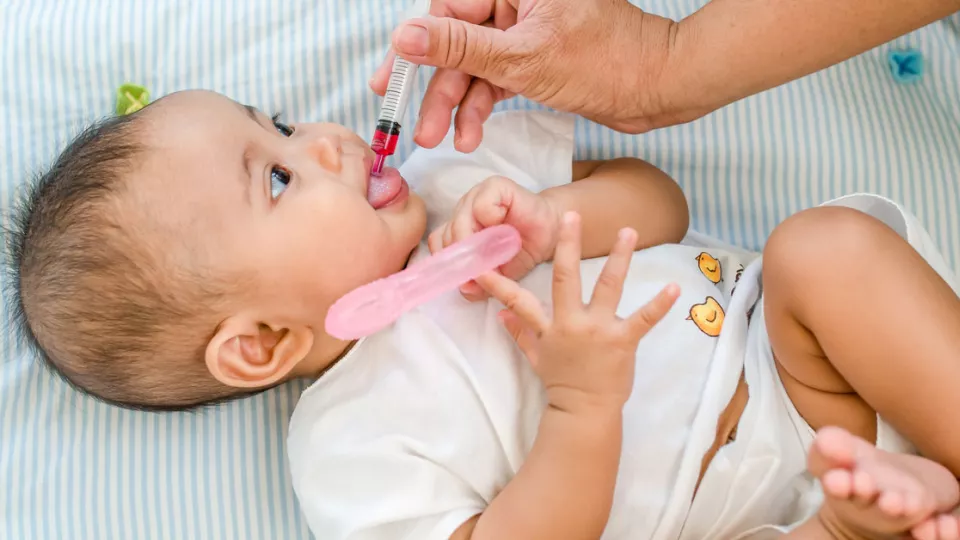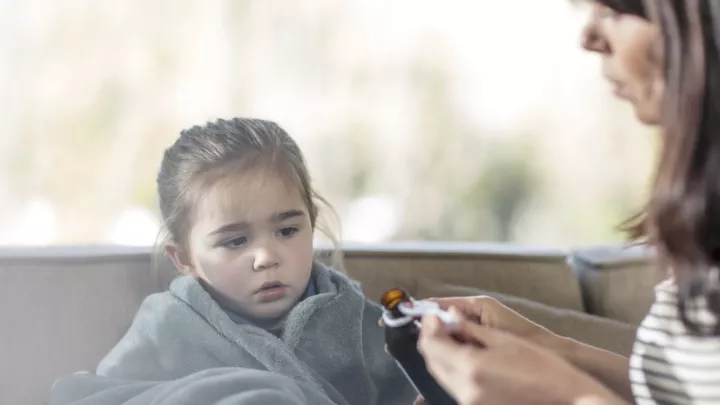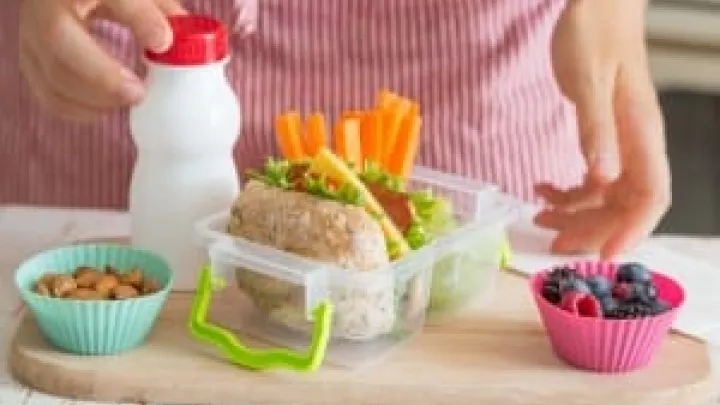
Tips and Tricks for Giving Your Child Medicine
Special thanks to Ashley Bennett, MD, for contributing to this article.
If you struggle with giving medicine to your child, you’re not alone. But it doesn’t have to be a stressful experience. Below is a stress-free guide to getting the medicine down smoothly and safely—without trauma or tears.
Safety tips for all ages
- Always measure the correct dose using a syringe or medicine cup. Don’t use kitchen spoons. If the dosage calls for teaspoons or tablespoons, you can still use the measuring cup—a teaspoon is 5 mL, a tablespoon is 15 mL.
- If your child vomits or spits out the medication, ask your doctor or pharmacist if you should give another dose or wait for the next scheduled time.
- Keep all medication out of reach, preferably in a locked location.
- Always supervise children when they take medicine.
Infants
- Use a syringe to squirt the medication between the cheek and tongue. Pay attention to cues from your baby after you begin to push down on the syringe. Go at their pace to allow them to swallow without choking. Do not hold their mouth shut after giving the medication.
- Some pacifiers are designed to give medicine. The pacifiers bypass the taste buds, so they can be quite helpful when the taste of the medicine is an issue.
- Another option for a bad-tasting medicine is to mix it with a small amount of breast milk.
- Do not put the medicine in a full bottle of milk. If your baby doesn’t finish the bottle, you won’t know how much medication he or she swallowed. And if the baby refuses the bottle, you will have wasted breast milk.
Toddlers
- Toddlers love praise. As with babies, use a syringe to squirt a little medication into the side of their mouth. Praise them when they swallow it.
- Avoid making it a traumatic experience. Make it less scary by modeling it on yourself or on your toddler’s favorite stuffed animal.
- Some toddlers may want to “do it themselves.” One idea is to enlist their help in holding or pushing the syringe. You could also let them help wash out the syringe in the sink after they take the medication.
- For bitter-tasting liquids, ask the doctor if the medication comes in capsules instead.
- For some medications, you can open the capsule and sprinkle the contents on yogurt or applesauce. (Ask your doctor if it’s OK to do this.) Use only a small amount of food, in case your toddler doesn’t want to eat it.
Young children
- Continue to praise children each time they swallow their medicine. Rewards, such as stickers or other small prizes, can be good incentives.
- Ask the pharmacist to flavor liquid medicine or mix it with something sweet. Let your child choose the flavor. Young children also do well with chewable or dissolvable tablets.
- Offer choices. To give your child a sense of control, offer some simple options, such as when to take their medicine (before or after getting dressed). Children may also choose to take medicine in a tea cup or with a superhero spoon (but make sure to measure it properly first).
- Explain to your child that the medicine will help him or her feel better or get back to school or favorite activities.
How to help your child swallow a pill
- Don’t tilt your child’s head back. This makes it harder to swallow.
- Use a straw. Tell your child to first take several drinks to practice swallowing. Quickly place the medicine in your child’s mouth and instruct him or her to take several small drinks through the straw to swallow the pill.
- Try smoothies or yogurt instead of water. Thicker liquids can make pills easier to swallow and can help mask the taste. (Check with your pharmacist first. Some pills must be taken with water.)
- Ask your doctor before cutting or crushing large pills. Many pills must be swallowed whole.
A note about teens
Many teens with health issues will go through periods when they struggle or refuse to take medication. It’s important to acknowledge their feelings and frustration. If needed, a therapist can help get to the bottom of any deeper issues.
Parents should still be in charge of making sure their teens take the medicine they need—particularly if they need it for a chronic condition, such as diabetes. You need to make sure that teens take the right amount—and that they remember to take it. Even the most responsible teen can forget from time to time.
Stay positive
It’s important to make sure medicine time does not turn into a traumatic experience for your child. If a particular medicine is too stressful for your child—or you’re not able to give the scheduled doses—call the doctor.
Remember, children will take their cue from you, so it helps to approach this task with a positive attitude. Stay calm and be patient. Some children have a more difficult time taking medicine than others, but by following these tips, you can help them learn this vital life skill.


